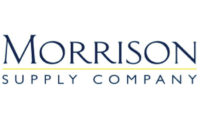Training should be a component of every employee’s life cycle at an organization. From onboarding to reskilling and upskilling, employees need support to do their jobs and develop skills that allow them to become even greater contributors within the organization.
That said, getting an organization fired up about training takes a committed effort. Someone who can advocate for and articulate employee training needs within the organization; they need a training champion.
ASA recently interviewed Jerry DeMoss of Elkhart, Indiana-based Mid-City Supply, to find out how his role as training champion impacted their training and development. DeMoss is a tenured Mid-City employee, with a passion for providing resources and training to directly impact employee development. While DeMoss has always been passionate about training, his training advocacy grew while in the role of resource manager at Mid-City Supply.
What is a training champion?
A training champion plays a pivotal role in advocating for training programs and takes on a key role in driving the training agenda. They actively promote the importance of training and development and can articulate the needs and benefits of ongoing learning, skill development and professional growth for employees and how these impact the overall success of the company.
This person may collaborate with various departments, managers, and subject-matter experts to understand specific training needs and ensure the training programs are tailored to address both individual and organizational goals. Additionally, the training champion works to create a positive learning culture by motivating employees to engage in training.
The Problem defined
Education is more than just “training;” it drives the success of their associates and customers alike. Mid-City leadership, with input from invested stakeholders like DeMoss, realized that their resource managers (RMs) had monumental challenges in navigating the constant flow of products and programs within the PHCP-PVF industry, and further guiding their customers to the appropriate resources to turn those products and programs into solutions. Beyond that, other Mid-City associates had the same solution-oriented goals, but often needed added assistance when trying to balance customer service with internal processes and procedures.
Along came DeMoss into the newly created role as the de-facto “training champion” — the S.H.E.R.P.A., as Mid-City would call it — to recommend training solutions that met individual associate needs. What is a S.H.E.R.P.A.? It stands for strategic helper effecting reputable professional associates.
Titles aside, the role directly impacts employee development by fostering an environment of improved training and communication with the organization. Taking on the mission with gusto, DeMoss saw the big picture and aligned training and resources to support employee development.
Finding solutions
As DeMoss took on the role of training champion, he did more than just identify training needs and skill gaps; he identified avenues to find solutions and evolve Mid-City’s training program. While Mid-City always valued training and offered training in small groups or one-on-one with associates at each location, they realized this delivery format was not sustainable.
To help organize and automate training offerings, first on DeMoss’ list was implementing a learning management system (LMS). In short, an LMS is a system designed to deliver training to end users in a structured and systematic way.
Mid-City recognized it needed to formalize its approach to training, and more importantly, have a way to track accountability and progress of employee knowledge. Although training was happening, it was loosely defined, and often difficult to track. It was also reactive — meaning training was taken when problems were identified, rather than providing knowledge proactively to employees.
Implementing an LMS allowed Mid-City to take a more proactive approach to training, as well as having a way to formalize onboarding and beyond. DeMoss and his team vetted content for their learning system, integrating offerings from not only ASA but other providers. And the library will only continue to grow as DeMoss’ next strategic move is made: designing Mid-City home-grown content utilizing the many years of experience garnered from their product specialists.
(Want to read more about capturing seasoned employee knowledge? Check out our story on F.W. Webb’s approach!)
Based on his observations, DeMoss also realized online training was not the end-all, be-all solution. Beyond online learning, Mid-City has also invested heavily in training centers where both their associates and customers can put their product knowledge into practice in a hands-on environment. This connection to “real life” is powerful, and between the formal education deployed through its LMS and its hands-on experience, it resulted in a holistic training process.
“When training is more about helping people and solving problems than checking a box on a requirement for reviews, it has a bigger impact on the attitude and performance of everyone involved,” DeMoss says..
As Mid-city continues to evolve its training program, its backbone for success lies in the fact that education is part of the distributor’s culture.
DeMoss shared that having a partner like ASA, which is heavily invested in education for the PHCP-PVF industry, is greatly appreciated.
“Their support has helped us tremendously in getting a head start on access to quality training,” DeMoss notes. “While the ASA education team is always available to help, we have a network of other ASA members willing to share their expertise, challenges, and successes.”
Without the keen eye of a dedicated resource like DeMoss, L&D initiatives can easily fall off the radar. When push comes to shove and business gets busy, having a champion to realign focus and steer the organization back towards their guiding principles is invaluable.
With Mid-City’s training program on solid grounds, DeMoss has now moved up to the role of director, resource managers. His role as a training champion will not change – and there is always room for additional champions in an organization!
You can be a training advocate, no matter what your role. The important first step is to be passionate about employee development and be willing to be a part of the solution to ensure training is a key component of the company culture and employee journey.



